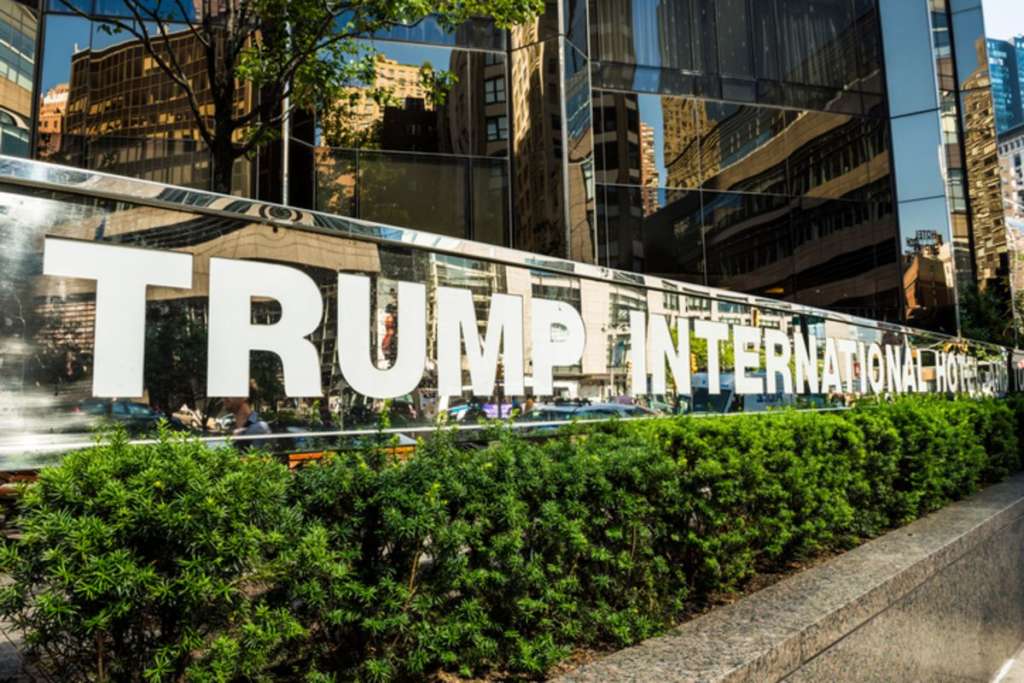Lots of people are worried about corruption and conflicts of interest in a Donald Trump administration. Those are grim words, but imprecise ones. To understand what the biggest problems would probably be, some broader perspective is required.
Presidential corruption is hardly a new theme in American history. Many of the Founding Fathers, including George Washington, engaged in rampant land speculation. That didn’t work out so badly. Their commercial motives gave them reason to favor independence from Britain and later to finance the building of infrastructure for a growing nation. A more insidious instance of conflict of interest stemmed from the extensive slaveholding of many politicians, which surely made them less eager to embrace abolition. So corruption can have favorable or unfavorable consequences.
Which is likely to be the case with Trump?
Many of the concerns about him start with his refusal to disclose much about his income, asset holdings and business interests. Even if he does not put his commercial interests before the national good, it will be harder for him to act with full legitimacy and credibility because he’s left so much to wonder about when it comes to his motives.
The upshot is that the possibility of conflict of interest will impose the biggest problems for those areas where a president’s legitimacy and credibility are most important, and also where the president has the most unilateral power. Those factors point to foreign policy as the most significant trouble area.
On most domestic issues, the U.S. president faces checks and balances, meaning Congress and the courts could assert control if needed. Furthermore, presidents with lasting influence are those who pass policies that are reaffirmed or extended by subsequent administrations, and that also limits the dangers from bad domestic policy.
Standard political economy suggests that the worst forms of corruption usually are decentralized. If you have to pay off 13 different bureaucrats to get a project through, the chance that one of them will hold you up, or that the aggregate of the bribes is simply too costly, is pretty high. Conversely, a single payment at the top can be a way to grease the wheels for big projects, some of which may be beneficial for the nation as a whole (imagine simply passing cash to a president for him to fix the country’s airports).
Or consider the value of domestic property as a potential source of conflict of interest. If Trump really put the value of his hotel properties before the national interest, that might encourage a lot of policies to foster urban growth, travel, and tourism. Those policies might not spread their benefits efficiently, but they are hardly the worst outcome imaginable. A lot of the most scathing critiques of Trump refer to his proposed climate-change policies, but those seemed common to most of the other Republican candidates, and they are not a result of Trump’s particular asset holdings.
Note that congressmen currently hold stock and other asset portfolios and they are not required to put them into blind trusts. Maybe that’s not the best system, but it has not brought national ruin, and it is not responsible for most of the ailments facing our legislative branch, such as polarization and gridlock.
But when it comes to foreign policy, all of these factors change for the worse, in part because the president has so much unilateral power. It’s hard for a president with perceived conflicts of interest to make credible commitments to allies because the allies can’t be confident that a president will stick to a proposed agreement or course of action. The result is an unraveling of alliances, a decline in international trust and possibly dangerous rearmament and nuclear proliferation. It’s hard for a subsequent president to reverse those losses.
Hostile powers or lukewarm neutrals also will be confused if foreign policy is not run in the usual predictable, bureaucratized fashion. That raises the risk of conflict or it makes an amelioration of tensions less likely.
Furthermore, imagine what would happen if members of the executive branch invited direct or indirect bribe payments from foreign powers. Large, corrupt, and partially hostile countries such as Russia and China – not Denmark – would probably make the biggest offerings. The Founding Fathers were especially worried about foreign bribes when they wrote the emoluments clause of the Constitution.
Or imagine that a U.S. president acted to preserve or extend the value of his properties abroad in lieu of pursuing the national interest. That would give the large countries most likely to grant favors and play “crony capitalism” (China?) the most sway with such a president, hardly a desirable filter for influence.
To guard against these dangers (and not just for this president-elect), Congress should reassert some of its prerogatives in foreign policy and judge foreign-policy appointments with extra strictness. If there is to be only partial disclosure of a president’s finances, let’s insist on information about international connections, which has a clear constitutional basis.
In the meantime, you can at least be glad that no president would want to nuke his own hotels.
Bloomberg
